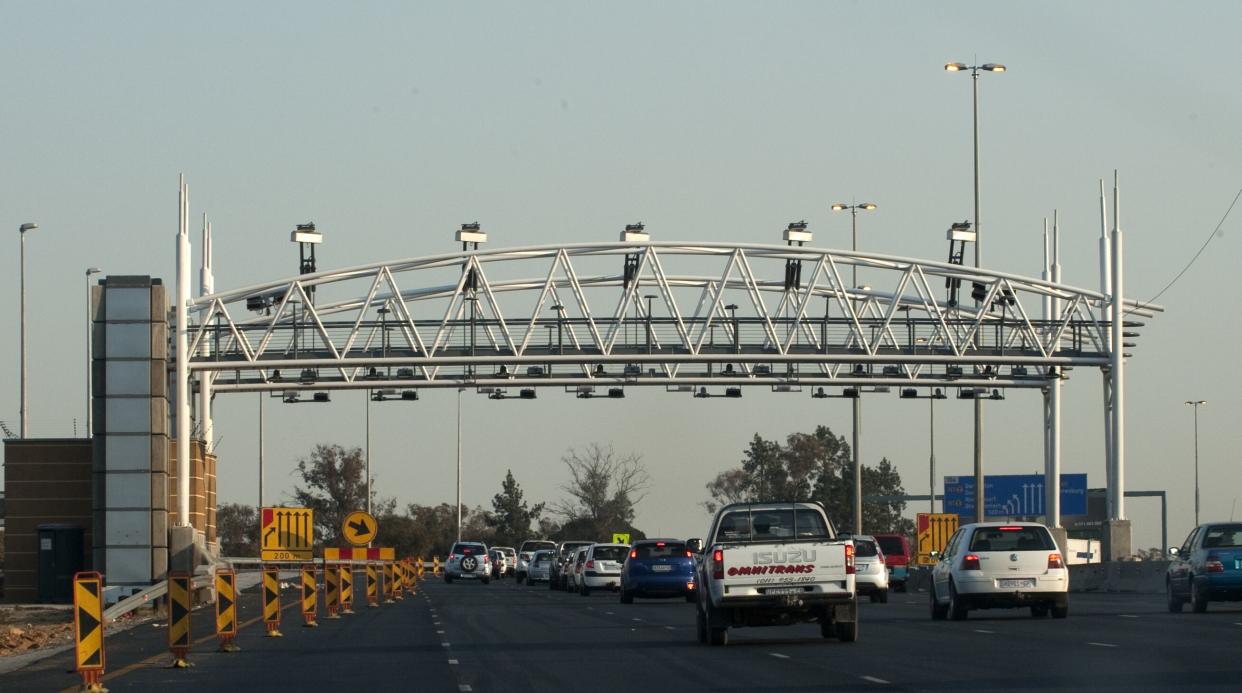Decade of Protests End Road Tolls in South Africa’s Biggest City

(Bloomberg) -- After facing more than a decade of civil disobedience, the rulers of Gauteng — the province that’s home to three of South Africa’s five biggest cities — have caved in and will switch off the electronic tolls on its key highways just before midnight Thursday.
Most Read from Bloomberg
Apple Plans to Overhaul Entire Mac Line With AI-Focused M4 Chips
Russian Attacks on Ukraine Stoke Fears Army Near Breaking Point
Vietnam Tycoon Lan Sentenced to Death Over $12 Billion Fraud
Since the system started in 2013, most drivers in the province of 15 million people — or a quarter of South Africans — have refused to pay the levies to use the freeways that connect the country’s biggest city of Johannesburg with Ekurhuleni and Pretoria.
In 2008, ahead of South Africa hosting the 2010 FIFA World Cup for soccer, the South African National Road Agency SOC Ltd. known as Sanral issued a little-noticed government gazette declaring that it would upgrade and toll the highways. While the improvements — alongside new stadiums and a high-speed rail service — made the tournament a success, it was only in 2011 that it became clear to citizens that they’d be paying for the new fly-overs and wider roads via e-tolls.
In a country where most companies and people rely on road transport in the form of trucks, private cars or minibus taxis, it was a deeply unpopular decision, even though roads were heavily congested before the project.
“Clearly, the resistance by Gauteng motorists and various other stakeholders suggests we could have consulted widely and done things differently,” South African Transport Minister Sindisiwe Chikunga said in a statement on Wednesday. “But that is now water under the bridge. This matter caused a lot of public aggravation.”
Sanral erected fancy steel gantries that spanned the roads and launched advertising campaigns to get people to pay. Still, despite a series of toll-price reductions and constant threats of legal action by the agency, the tolling system — built and operated by Austria’s Kapsch TrafficCom AG — has largely been ignored.
Vote Loser
The tolls were an election issue for the ruling African National Congress, with its share of the provincial vote falling to 36% in 2021 from 60% in 2011, creating tension between provincial and national leadership. They’re also the subject of numerous legal challenges and caused Sanral’s debt to soar.
Now, as Sanral Chief Executive Officer Reginald Demana told Johannesburg broadcaster 702 Thursday, the agency will keep sending out invoices for outstanding debt even though the company in 2019 said it would stop prosecuting non-payers and that decision “stands.” In fact, Demana said, money already paid by the few who did comply, may even be repaid.
“It was a vanity project,” said Wayne Duvenage, who helped establish a legal and lobby group, the Opposition Against Urban Tolling Alliance, in 2012. “If you don’t have a very compliant society with excellent systems” it won’t work and we don’t, said Duvenage, who is chief executive officer of the group. It changed its name to the Organisation Undoing Tax Abuse in 2016 and expanded its mission to tackle government corruption.
Still, while civil-society groups and citizens have hailed the decision, taxpayers will end up paying anyway.
The National Treasury this year agreed to cover Sanral’s 43 billion rand ($2.3 billion) of debt from the project, with the Gauteng administration undertaking to pay the national government 30% of that and spend a further 4.1 billion rand on maintenance.
Outa’s Duvenage said he said he doesn’t understand how the Treasury and Sanral arrived as that figure. because work on 186 kilometers (116 miles) of highways and associated infrastructure had cost 21 billion rand against an initial estimate of 7 billion rand.
For now, the dispute is over and the annoying noise e-tags make when cars pass under the gantries should cease.
“The beep will be phased out,” Sanral said.
Most Read from Bloomberg Businessweek
Toyota Pins Its Hopes on Revamped 4Runner to Beat Ford and Hyundai
Race for AI Supremacy in Middle East Is Measured in Data Centers
Everyone Is Rich, No One Is Happy. The Pro Golf Drama Is Back
©2024 Bloomberg L.P.


